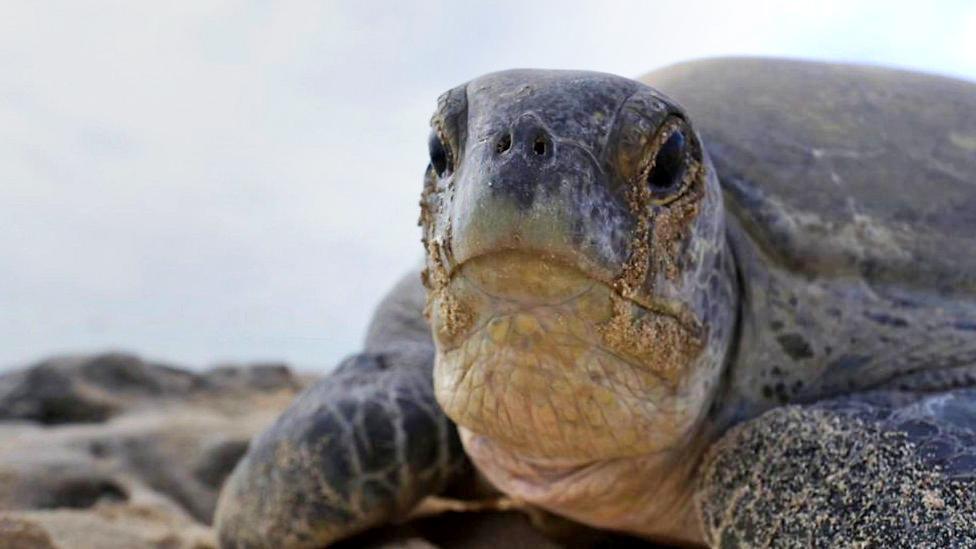Planet Earth producer's 'crazy' first Arctic wolf encounter
- Published
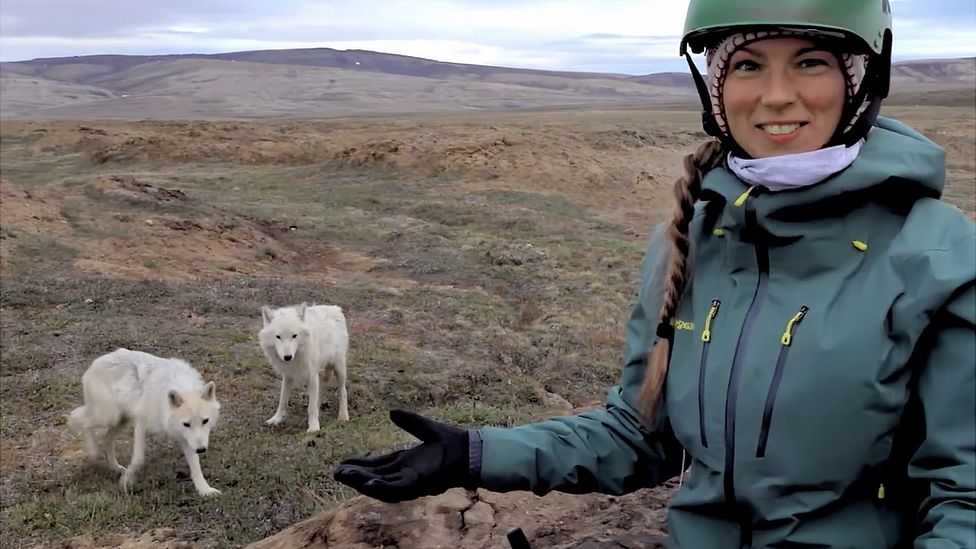
Alex Walters: 'The first time I met them it was crazy... they were within metres of me'
Planet Earth III is back on our screens again this weekend but for Bristol-based Alex Walters, she has lived it.
For the past five years, she has been working as an assistant producer on the award-winning programme.
For the sixth instalment, Extremes, she spent three months camping on an isolated island filming Arctic wolves.
Filming on Ellesmere in the Canadian Arctic, crews had to cover up to 50 miles per day on all-terrain vehicles in their search for a wolf pack.
Ms Walters said: "I allow myself to take one luxury item, a travel size pot of marmite, it's really hard to find that in other parts of the world."
It was back in 2018, that Alex Walters began the search for creatures with an "interesting story" to feature in the latest series of Planet Earth.
"We sort of know what's going to work," she said.
"But I do quite like to find quite obscure animals for instance a tragopan - which is this crazy dancing bird in Asia which I read about in a wildlife book from the '80s.
"I was completely hooked by this bird that had never been filmed in the wild."
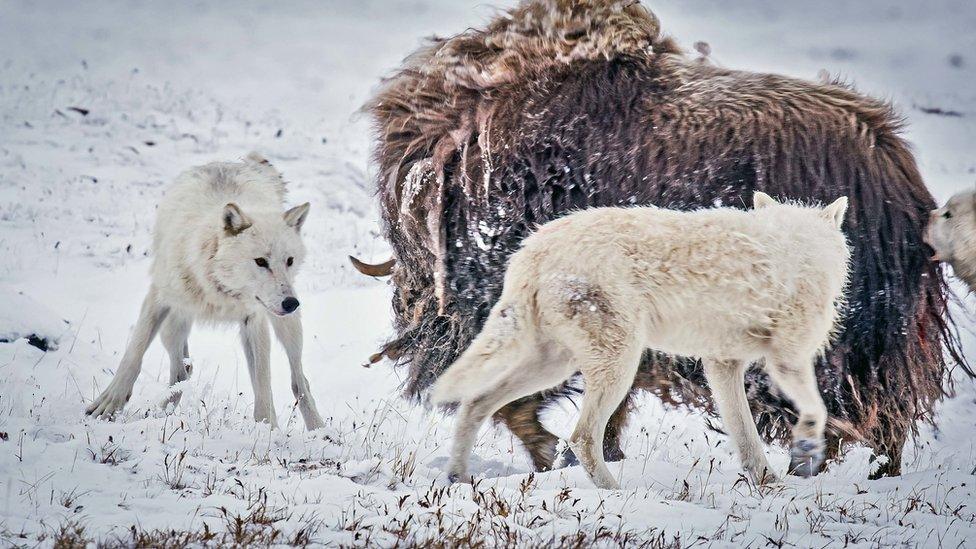
Film crews had to cover up to 50 miles per day on all-terrain vehicles in the search for a wolf pack
The comical dance routine of the shy tragopan bird, features in episode 5, Forests.
In episode 6, Extremes, it is the turn of the arctic wolf.
"The first time I met them it was crazy. I'd never met an Arctic wolf before," said Alex.
"They just walked up to me and they were within meters of me. It was just the most incredible moment. And the way they look at you, you can tell they're just curious."
'Camp blew away'
After finally tracking down a pack, the crew turned their attentions to setting up camp ready for three months of extreme camping.
"Then we had these katabatic winds that came in the middle of the night and blew our kitchen tent away, flattened all the tents, broke tent poles," said Alex.
"It was a complete disaster but we found the kitchen tent two kilometres away and managed to put it all back together."
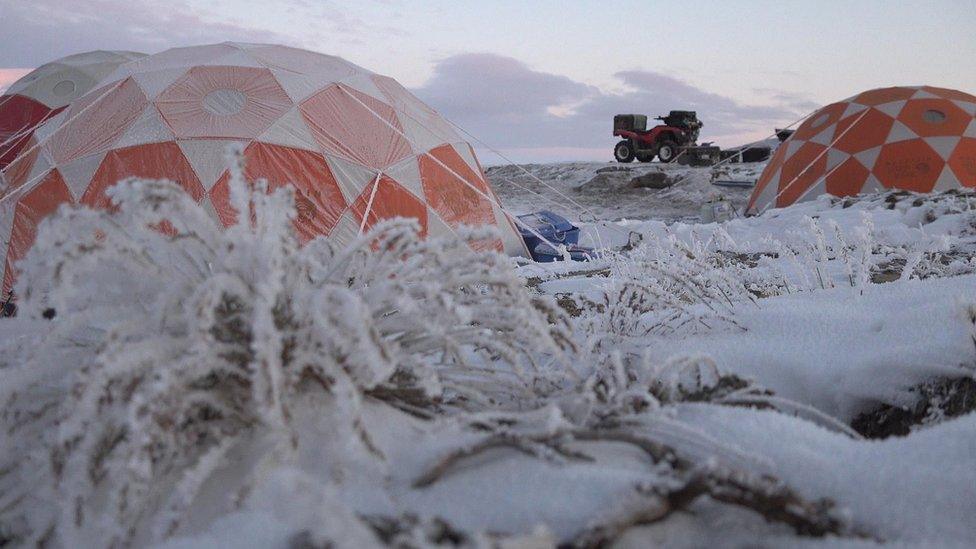
"Then we had these katabatic winds that came in the middle of the night and blew our kitchen tent away. "
Tracking down the elusive wolf pack had been tough, but once the camp had been set up the curious wolves could not be kept away.
"Out in the Arctic it's just this great expanse so if there's a camp - that's so interesting to them [wolves]," said Alex..
"So they'd come to our camp and they would break the guy lines on our tents, and you would hear this pinging sound and they would rummage through things.
"They did actually steal someone's Wellington boot and ran away, and completely ripped it into ribbons."
'Very wild feeling'
The crew had hoped to film the Arctic wolf pups spending their first weeks on the tundra, but none of the packs had pups that year.
Instead they had to let the wolves tell the story and "see what happened".
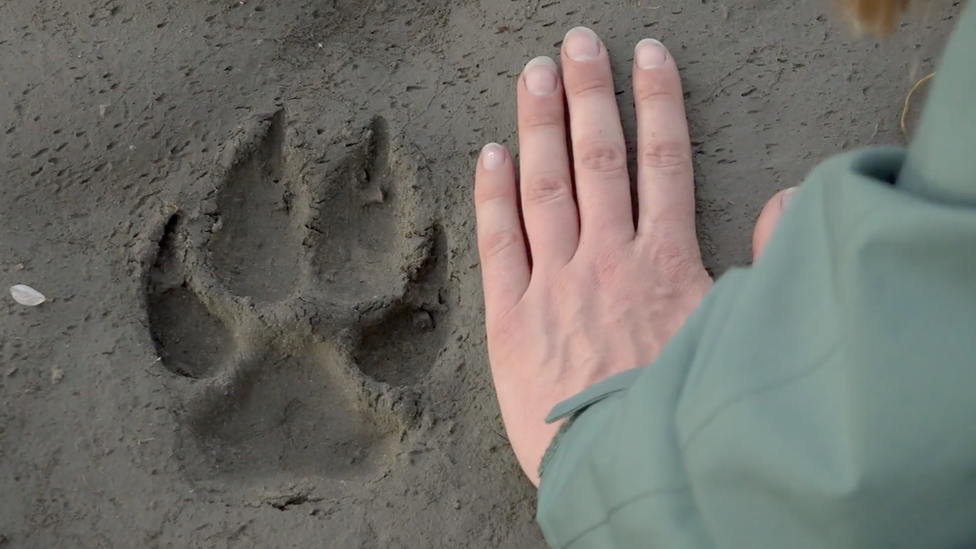
"They'd come to our camp and they would break the guy lines on our tents."
"There was a moment, a really odd moment that we don't really get very often in modern life, where you sort of feel this very wild feeling," said Alex.
"As I was walking towards the equipment tent I suddenly realized the wolves were at the tent and they suddenly clocked me.
"One of them looked at me and tilted his head, and then the others looked up, and they all tilted their heads and looked at me, and they started, sort of walking towards me.
"It felt how it must have felt back in the Stone Age when you feel this real sort of fear.
"But out there you do get these sort of visceral almost ancient feelings. So that was something that will definitely stay with me."
The sixth instalment of Sir David Attenborough's latest series of Planet Earth will be on BBC One and iPlayer on 26 November.

Follow BBC West on Facebook, external, X, external and Instagram, external. Send your story ideas to: bristol@bbc.co.uk, external
Related topics
- Published23 October 2023
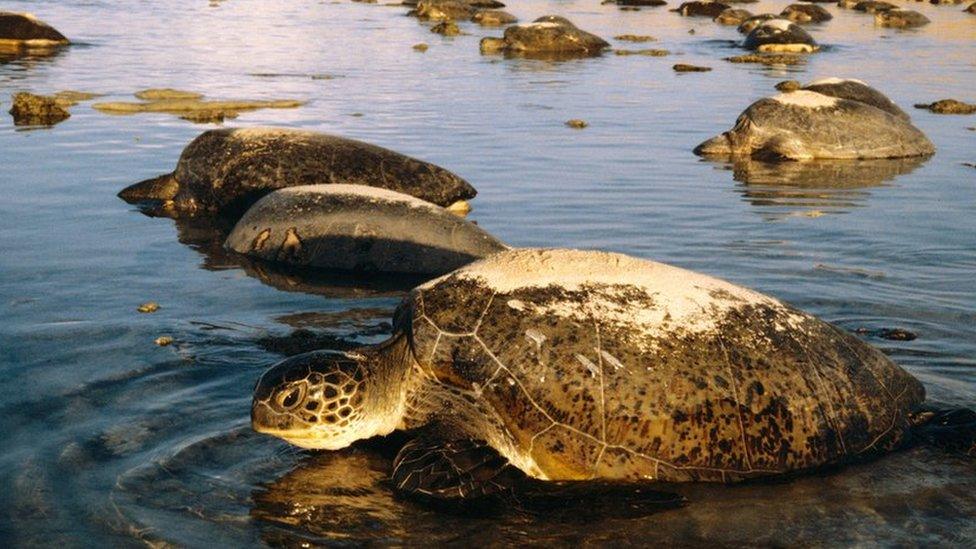
- Published22 October 2023
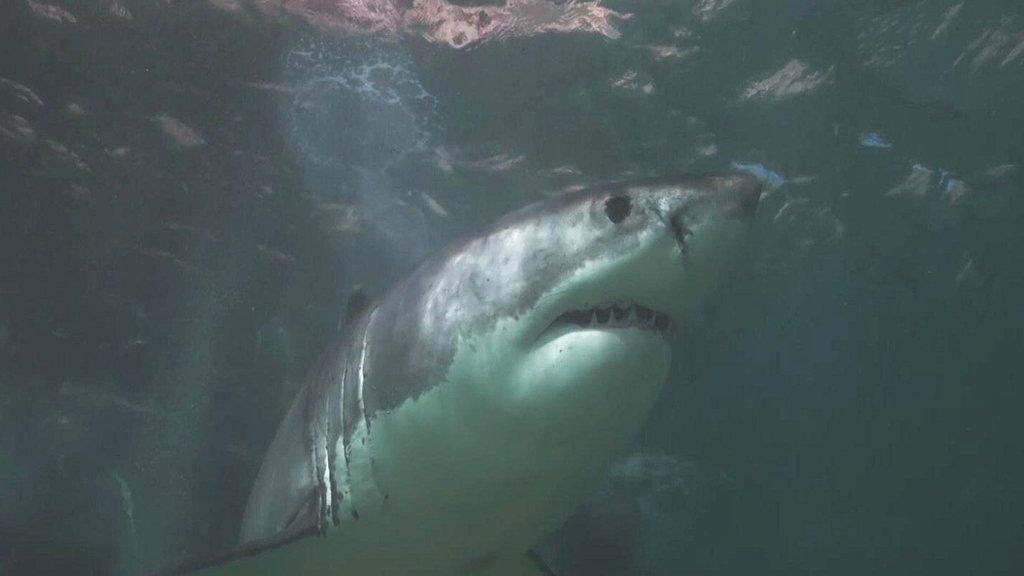
- Published16 October 2023
